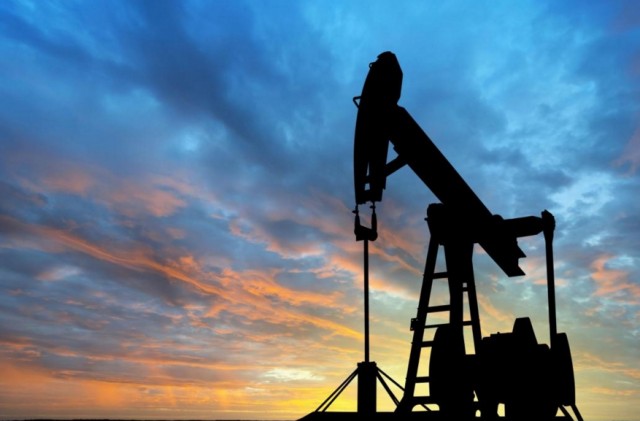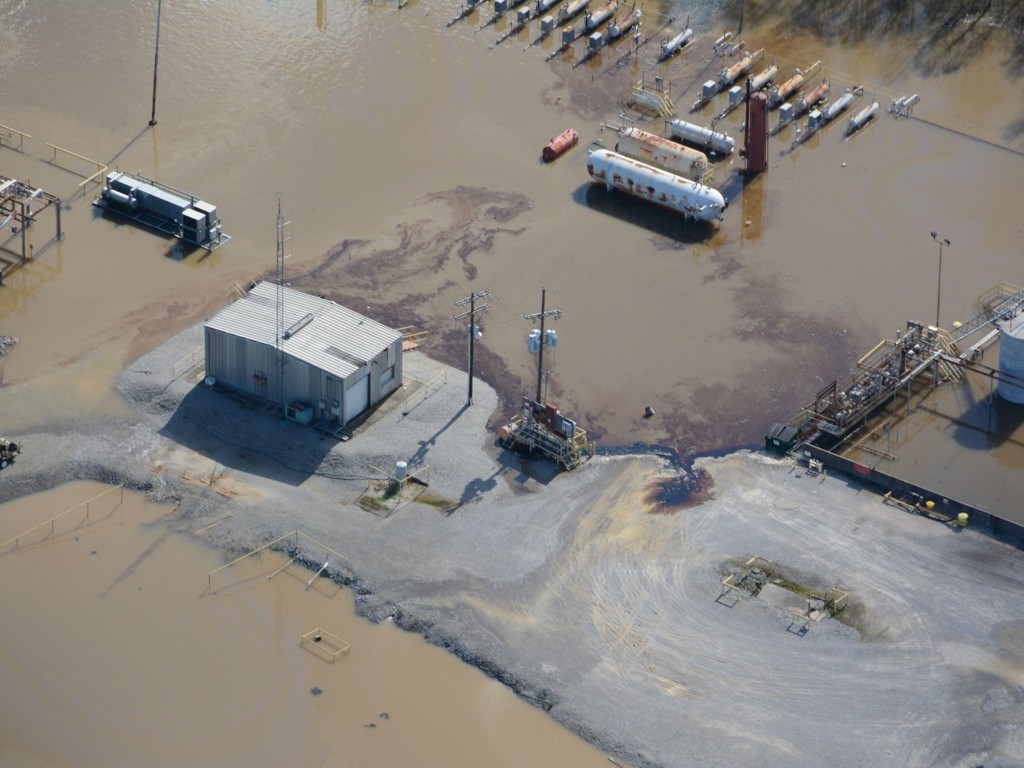
Drinking water in West Texas may be laced with extremely harmful chemicals linked to brain cancer, leukemia and birth defects, according to health officials warning of a potential catastrophe. Heavy rains triggered flooding across the Lone Star State in recent months, causing an array of noxious fracking chemicals to be washed into local waterways.
Emergency management officials in Texas employed the Civil Air patrol “to photograph possible oil spills and leaks around the flood regions where a catastrophe could be in the making,” reports Sputnik News.
“Many environmentalists and residents have expressed concern that recent floods have deluged fracking sites, spreading oil and the chemicals used to turn shale into oil and is now depositing them into waterways and even possibly drinking water,” it reports.
Flooding washes harmful fracking chemicals into waterways
Fracking or hydraulic fracturing involves high-pressure injection of millions of gallons of water mixed with chemical additives into rock formations deep underground, allowing for the extraction of previously unreachable oil and gas reserves.
The process utilizes a cocktail of at least 200 different chemicals, a third of which experts know almost nothing about, including the health and environmental effects. Eight of the chemicals are identified as being dangerous to mammals, according to William Stringfellow, PhD, a scientist raising concerns about fracking.
This was proven in Texas when cattle that drank fracking fluid died within an hour.
Aerial photographs show the recent floods caused oil-sheen “as well as plumes flowing from tipped tanks and fracking sites that were inundated with rainwater during March’s flooding of the Sabine River,” SputNikNews.com reports.
Cattle die after drinking fracking fluid
Dr. Walter Tsou, a physician and former president of the American Public Health Association, called the situation “a potential disaster,” after reviewing the aerial photographs. “Cattle that drank the fracking fluid actually died an hour after drinking it,” said Tsou.
“There are potential carcinogens that can lead to leukemia, brain cancer and other endocrine disruptors that can affect premature births. So it is not good to drink fracked wastewater.”
The recent flushing of fracking chemicals into Texas waterways is a not an isolated incident, but rather a common occurrence following heavy rainfall. Pictures taken after flooding in Texas last year showed similar results.
However, the Railroad Commission of Texas, the regulator of oil and gas drilling and production, says it’s not worried. “I’m confident that once the agency is notified, we’re taking appropriate measures,” said Rich Parsons, the agency’s communications director.
Scientists and environmental activists are not convinced, though, citing concerns regarding raging floodwaters and the harmful chemicals washed into streams (and potentially drinking water) as a result.
Pollution worsens in Texas due to lax government regulation
“They’re looking after the fact at what might have happened,” said Ken Kramer, water resources chairman of Sierra Club’s Texas division. “Because of that, it’s pretty hard to figure out exactly what happened.”
Oil and gas producers are rarely held accountable for weather-induced oil spills on inland production sites, notes the El Paso Times, adding that the Railroad Commission has no incentive to punish polluters because of the campaign dollars it receives from energy producers.
“They don’t enforce. They don’t fine. But they do whine about needing more money from the Legislature,” said Lon Burnham, a former Democratic state representative from Fort Worth.
Texans for Public Justice published a report [PDF] last year showing that each of the commissioners received more than 50 percent of their campaign funding from industry donors.
Last week Environment Texas revealed that the state’s hand-off approach to environmental enforcement resulted in 68 million pounds of air pollution in 2015, the majority of which was released illegally.
Using self-reported industry data, the nonprofit found oil and gas producers to be the biggest (and most repetitive) offenders.
Oil and gas production is responsible for “releasing more acid rain-causing sulfur dioxide, and more smog-causing and often toxic volatile organic compounds from malfunctions than any other industrial sector,” the report concluded.
It added that “…oil and gas producers appear to treat malfunctions – and the unfettered air pollution releases that accompany these events – as a routine business practice.”
Texas regulators routinely allow “industries to release excessive amounts of air pollution when old and poorly controlled equipment breaks down and when facilities undergo maintenance work.”
Click here for a graph illustrating the worst polluters in Texas.
Sources:


